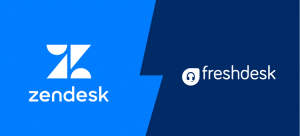With rapid technological advancements rolling ever onwards, IT outsourcing service providers need to remain ahead of the curve. The key is scrutinizing and adopting emerging data trends as early as possible.
To adapt successfully, providers of IT service desk outsourcing in particular must recognize client needs that are shaped by these changes, identifying areas where they can add value or enhance their services.
Succinctly put, maintaining relevance in this evolutionary epoch necessitates constant learning and swift adaptation to changing trends. Let’s look at some of these trends, and the steps outsourcing services are taking to embrace them.
Leveraging AI: How Outsourced Providers Adapt to Changes
Artificial Intelligence has fundamentally altered the landscape of IT outsourcing. With its capacity to automate complex tasks and analyze vast amounts of data, AI opens numerous possibilities for providers, including:
- Automated Customer Service: By implementing chatbots and platforms like Zendesk, providers can offer 24/7 customer support.
- Data Analysis: AI’s ability to efficiently process large datasets allows quicker and more accurate trend predictions.
- Enhanced Security Measures: Through machine learning algorithms, potential security breaches can be identified and prevented early.
However, successfully integrating AI into operations doesn’t come without challenges. For instance:
- Keeping on top of rapid advancements in technology is a constant demand.
- Training staff to work with new tools adds an extra layer of complexity.
Despite these hurdles, embracing AI is integral for outsourcers aiming to keep pace with evolving industry standards. It offers not only efficiency but also a competitive edge in delivering cutting-edge solutions. In short, harnessing the power of artificial intelligence provides enhanced value both now and moving forward.
Web Scraping and its Role in Modern Outsourcing
Web scraping tools have emerged as critical assets in the IT outsourcing industry. They help extract large volumes of data from websites, offering valuable insights for decision making. The main functions are:
- Data Collection: Automated scrapers fetch vast amounts of information, saving time.
- Competitor Analysis: Scraper tools reveal strategies or pricing models used by competitors.
For instance, the ZenRows web scraper can streamline these tasks effectively due to its intricate capabilities. Besides this kind of sophisticated tool use, knowledge of coding languages plays a significant role too. Python’s role in web scraping is noteworthy, and it supports numerous libraries fully geared toward this task.
However, there are key challenges to bear in mind when using web scrapers:
- Legal Issues: Not all websites allow web scraping, and doing so might violate terms and conditions.
- Maintenance Efforts: Webscraper scripts may need frequent updating if site structures change.
Regardless of the potential pitfalls, implementing such technology offers advantages for outsourced services, providing rapid access to essential online data that can give them the upper hand in a competitive niche, regardless of the outsourcing service they offer.
Big Data Analytics: A Major Shift in the Outsourcing Landscape
Big data analytics has resulted in a few seismic shifts in IT outsourcing. It can follow on from data collection activities such as web scraping, and is useful for:
- Improved Decision Making: Real-time data analysis leads to more accurate business decisions.
- Predictive Analysis: Historical trend studies can help predict future scenarios or outcomes.
With significant advances made possible by cloud infrastructure and improved connectivity, big data’s potential is expanding continually, encompassing:
- Deep Learning Algorithms can tackle complex pattern recognition tasks with ease.
- The Internet of Things: The rise of IoT devices contributes an ever-growing volume of usable transactional and environmental data. We’ll talk about this more a little later.
However, understanding and leveraging big data brings certain challenges:
- Technical Expertise: Big data requires specialized skill sets that not all firms possess.
- Privacy & Security Concerns: Storing and analyzing such large volumes raises valid security risks.
While these obstacles are not insignificant, outsourced providers delivering on robust big data management capabilities reap benefits including enhanced efficiency, cost savings for clients, and even driving innovation.
IoT Hardware & Its Growing Influence on Modern-Day Outsourcing
The Internet of Things has revolutionized the dynamics between IT outsourcing and business. By connecting everyday devices to the internet, enormous volumes of data can be captured, enhancing processes such as:
- Real-Time Monitoring: IoT enables instant tracking and reporting for better decision-making.
- Predictive Maintenance: Anticipates system breakdowns based on historical patterns.
IoT’s rapid growth is paving new paths in IT outsourcing, including:
- More Data Sources: Increases volume and diversity of information available for analysis.
- Remote Work Environments: Enhances connectivity amongst distributed team members.
However, with IoT-complexity being multi-layered, it brings its own set of obstacles to overcome:
- Security Threats: Connecting more devices expands vulnerability entry points.
- Complexity: Effectively managing large-scale deployments can be arduous.
Providers embracing IoT technologies thrive by offering clients unique solutions tied closely to on-trend advancements. It’s another example of how the growing number of data sources available to organizations in this industry and beyond creates a scenario from which there’s no turning back, so you either adapt or get left by the wayside.
Privacy Matters: Data Protection Measures in IT Outsourcing
With digital transformation growing exponentially, safeguarding data integrity is paramount for outsourced service providers. They must establish strict privacy protocols including:
- Robust Encryption: Ensures sensitive client data remains unreadable if intercepted.
- Regular Audits: Leave nothing to chance and continuously check system vulnerabilities.
Implementing stringent data protection measures draws distinct advantages, such as:
- Enhanced Trust: Clients will be more confident knowing their sensitive information is secure.
- Compliance with Regulations: Adhering to global privacy laws avoids potential legal ramifications.
Of course, achieving adequate levels of data security does involve encompassing a couple of kinks in your plans:
- Up-to-date Defense Technologies: Constant updates are necessary due to evolving threats.
- Staff Training and Awareness Programs: Even a simple mistake can lead to breaches or leaks.
This trend is especially relevant because it’s one which applies to everyone, and so there’s a level of understanding and awareness that isn’t necessarily applicable to the other elements we’ve discussed.
You can’t brush privacy and security under the rug, because clients will know about these sticking points, and will want to see that steps have been taken to deliver them before they procure any outsourced service. So, it’s a question of keeping the competitiveness of your company in mind, not just adhering to best practices for altruistic reasons.
The Last Word
As we move ahead, it’s undeniably that outsourced IT providers need to harness emerging data trends diligently. Web scraping, AI integration, big data analytics, and IoT tech will continue shaping the industry in this context. Only by navigating complex privacy issues while embracing these transformative changes can outsourcing services truly take their operations to the next level.






